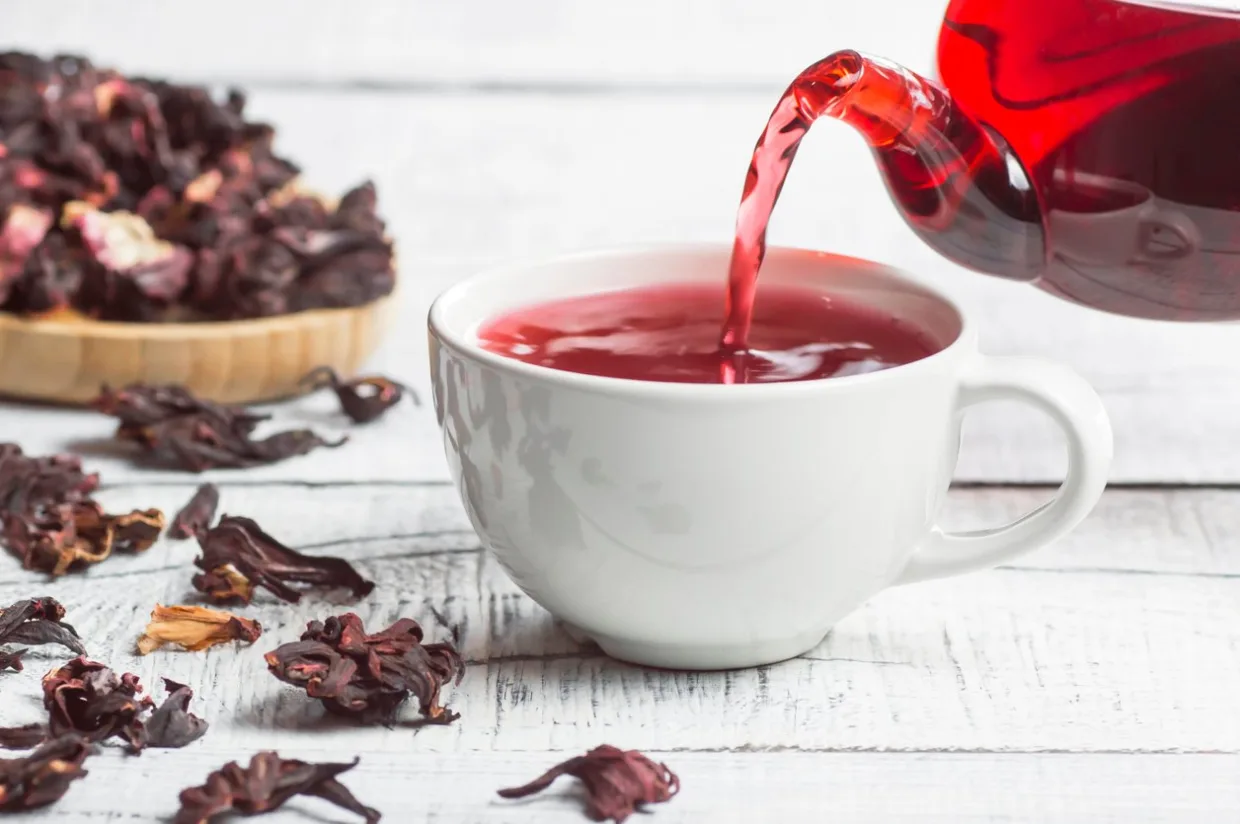If you think hibiscus tea or zobo drink (in some parts of West Africa) is just a cheaper substitute for soft drinks, think again. Hibiscus sabdariffa, a tropical flowering plant, has been named by dieticians and medics to proffer several health benefits. For many years now, hibiscus ceased to be a mere ornamental crop as it found application in traditional medicine as an antidote for indigestion and high blood pressure. Aside from the flowers, the seeds, leaves, and stems have their medicinal effects which are widely taken advantage of in many parts of the world, particularly in West Africa.
Hibiscus tea is also a fantastic immunity booster and weight loss drink. It is rich in antioxidants and can fight off free radicals which cause diabetes, cancer, and heart diseases. What this means is hibiscus tea fortifies your body against diseases. In addition, it can also help to lower cholesterol levels, improve liver health, and work as an anti-inflamation remedy. Due to all these benefits, hibiscus is now incorporated into fruit jams, supplements, syrups, sauces, and jellies. This leaves room for people to enjoy the benefits it offers in a variety of ways, which is awesome.
Read Also: Four Tips For An Eco-Friendly Christmas Celebration
Added to all these benefits, Pohang University of Science & Technology (POSTECH) Professor, Kyong-Tai Kim and academic colleague Kyung Won Jo, recently found out that hibiscus tea can be used to combat Alzheimer’s disease (AD). Alzheimer’s disease is a gradual decline in cognitive ability that affects memory, thinking, and behavior. This brain disorder is said to be the commonest cause of dementia in the aged. Although AD cases is relatively low in Africa compared to Europe and America, an estimated 2.13 million people suffered from this condition in sub-Saharan African and the number is predicted to double, in less than two decades from now.
Considering the grim possibilities ahead, hibiscus offers some hope. Recent research has found that a compound in the hibiscus plant has the potential to tackle Alzheimer’s Disease. Kim and Jo of the POSTECH’s Department of Life Science found that gossypetin in hibiscus activates certain immune cells in the brain known as microglia. Once activated, microglia scavenges amyloid-beta (responsible for decline) in the brain and consequently improves cognitive function in individuals with Alzheimer’s disease. Gossypetin is a flavonoid compound found in hibiscus, (sometimes known as roselle). This flavonoid has anti-inflamatory effect on the brain tissues that are most affected by AD, thereby resulting in the prevention or improvement for the condition.
If you would like to add hibiscus to your diet to enjoy these benefits, you may consume it as tea made from dried buds soaked in boiled water or regular tea bags available in stores. Other methods include, taking it as powdered hibiscus (often mixed with beverages) or as in extracts sold in herbal supplement stores. While consuming too much of hibiscus tea may result in allergies or liver dysfunction, registered dietician, Beth Czerwony, recommends a cup, daily.
Ehi-kowoicho Ogwiji is a storyteller and science writer who advocates for a science-literate Africa. She aspires to be a science development communicator and leader of important conversations around gender imbalances in STEMM (Science, Technology, Engineering, Mathematics, Medicine) in Africa and around the world. She writes from Abuja, Nigeria. Connect with her on social media @ogwijiehi or email her at ehikowoicho.ogwiji@gmail.com

